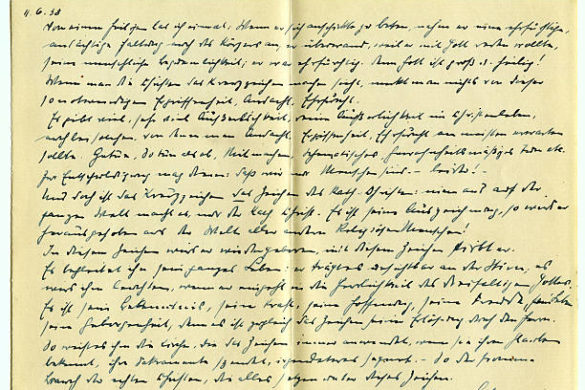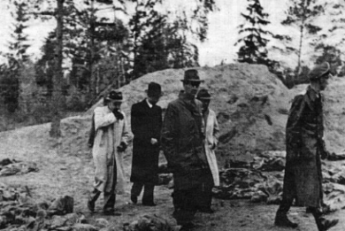
Józef Mackiewicz’s article “The Pastoral Letter”
On March 23, 1969, the emigrant weekly “Wiadomości” in London published an article by Józef Mackiewicz entitled “The Pastoral Letter”, in which he criticizes the letter of Polish bishops of September 15, 1968, published on the occasion of the 50th anniversary of regaining independence. Mackiewicz raises several key issues that concern not only the church itself as an institution, but also a certain hypocrisy depending on the “seating point”. What content could we read for 3 sterling in 1969?
Mackiewicz points out in his article that Pope Paul VI’s subordination of the emigration clergy to the Primate of Poland, as a result of which Bishop Władysław Rubin became the spiritual guardian of the exile, was a mistake, because Bishop Rubin acted in accordance with the expectations of the authorities of the People’s Republic of Poland, not the emigration. […] Anyone who has read the Episcopate’s letter for the 50th anniversary of independence, published in Krakow’s “Tygodnik Powszechny” No. 46 of November 17, 1968 in its entirety, involuntarily has the impression that – apart from the sublime content and tone of this letter – it rather puts a sign of the equation between the “freedom of Poland” and the People’s Republic of Poland. I think that’s a big enough cause for concern.”
Mackiewicz also emphasizes that, according to him, “PRL is not a continuity of Polish statehood, but a remnant of the Bolshevik revolution.”
Mackiewicz drew attention to the fact that although one can and should understand the compromises that the Polish episcopate and the Primate choose in the name of the greater good, making certain concessions to the authorities of the People’s Republic of Poland, Bishop Rubin’s conduct in this regard is unacceptable. As an example, he cited the bishop’s refusal to participate in the “service for the souls of those murdered in Katyn” celebrated in the free, emigration world. For Mackiewicz, Katyn was a particularly important issue – among other things, because he reported on the exhumations of corpses. He emphasizes once again the role of the Polish emigration – which did not have to act under pressure, but precisely in freedom, and therefore it was “a faction of the Polish nation that can openly and solemnly celebrate services for the compatriots murdered in Katyn.”
Józef Mackiewicz does not stop there. He continues, critically assessing the reflections of the Church, which is unable to establish any date for the service for the souls of the Katyn victims. “So (the Church), preserving the apolitical nature of her pastoral mission, prefers not to mention or celebrate the service at all. Leave the souls of those murdered in Katyn without the intercession of prayers for the forgiveness of their sins, for ever and ever, amen,” writes Mackiewicz.
Similarly, in his opinion, it is unacceptable for emigrants to fall into apathy, a kind of dormant self-satisfaction, forgetting about their duties and basic political duties towards the nation and homeland. He concluded his argument by expressing his conviction that although the words of the anthem “Boże, coś Polskę” changed by the episcopate are disturbing, the Polish nation will continue to oppose the power imposed on it.
Source:
Article by Józef Mackiewicz entitled “The Pastoral Letter” published in the weekly “Wiadomości”, March 23, 1969; AAN, Files of Zofia and Stefan Korboński, reference number 347.






